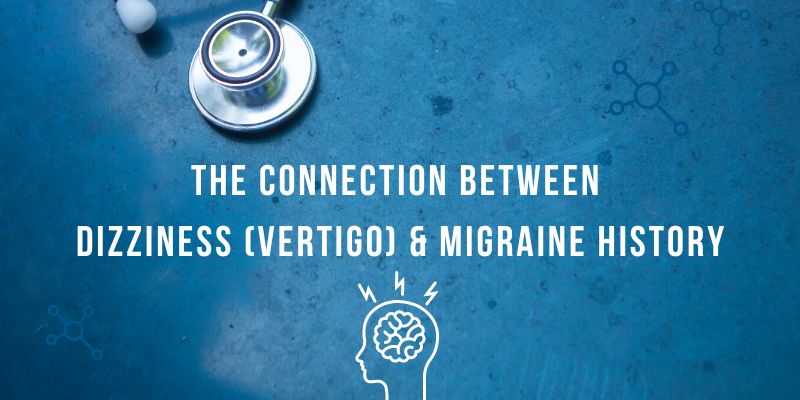A 30-year-old female presented to Dr. Lixin Zhang at Dent Neurologic’s Dizziness, Balance, and Tinnitus Center with a complaint of headaches and dizziness. Three months ago she had her first vertigo attack; she felt like the room was spinning and got nauseous.
Since then, she’s had five more of these major attacks each lasting over an hour. She’s also had constant dizziness, almost like she’s drunk or on a boat. She had migraines in high school, but nothing major in a while, but every time she gets vertigo she has a headache as well.
After she consulted with Dr. Zhang the patient was scheduled for imaging of the brain and vestibular (balance) testing. For this patient, the imaging of the brain did not find anything to explain her symptoms. The vestibular testing involves head movements and tracking of the eye and is performed by one of the Tinnitus Center’s audiologists. Patients also undergo a hearing test as a part of vestibular testing to rule out other potential diagnoses that affect hearing.
What is vestibular testing?
At the follow-up appointment, a trained provider reviews the results of imaging and vestibular testing with the patient. The imaging found nothing to explain the cause of her vertigo and dizziness. This patient’s vestibular test findings suggest that her dizziness is caused by a problem in her brain.
In combination with her history, this patient was determined to have migraine-associated vertigo (MAV). In the past migraine-associated vertigo has also been called vestibular migraine and vertiginous migraine.
Migraine-Associated Vertigo (MAV)
Migraine-associated vertigo, also called vestibular migraine, involves headaches in combination with vestibular symptoms such as vertigo, imbalance, nausea, and vomiting.
Treatment of migraine-associated vertigo involves medications commonly used for the treatment of migraine. This includes off-label lamotrigine, which is primarily an anti-seizure medication. Past research has demonstrated that lamotrigine works for migraine as well as migraine-associated vertigo. Dr. Zhang’s research has also supported these findings.
Dr. Zhang believes that lamotrigine works by calming down the activity of the brain. Both migraines and vertigo are likely caused by hyperactivity of the brain. Thus, by lowering the activity in the brain the patients can have a reduction in symptoms.
Stress and anxiety linked to vertigo attacks
Some people may be more prone to having a hyperactive brain. This includes patients with high stress or anxiety. To combat this, Dr. Zhang often prescribes patients an anti-anxiety medication along with lamotrigine. The anti-anxiety medications raise the threshold of activity in the brain, making the brain less likely to reach hyperactivity.
Dizziness associated with anxiety is more likely to be throughout the day, compared to major vertigo attacks which can last a few hours. The lamotrigine helped with the vertigo attacks, but the patient still felt constantly imbalanced. An anti-anxiety medication helped to relieve the patient’s dizziness she described as feeling “drunk” and “on a boat.”
Are women susceptible to hyperactivity?
Women going through hormonal changes may be especially susceptible to crossing the threshold of hyperactivity. Our previous research has found a peak in the onset of migraine during the time of female puberty and a peak in migraine-associated vertigo around the time of menopause. However, this does not mean that migraine-associated vertigo cannot occur in males or other parts of life.
Better quality of life for our patients
Dr. Zhang hopes that further research on lamotrigine will lead to its approval for the treatment of migraines and migraine-associated vertigo. In the meantime, he continues to prescribe lamotrigine off-label to treat migraines and vertigo associated with migraine-associated vertigo in his clinic. Lamotrigine in combination with anti-anxiety can assist a patient to achieve complete remission and have a better quality of life.
Dr. Zhang and his team are dedicated to helping people with migraine-associated vertigo, or any dizziness and balance issues. Call to schedule an appointment with our dizziness and vertigo team at 716-250-2000.
_______________________________
The content of this post is intended for general educational and informational purposes only; it does not constitute medical advice. Readers should always consult with a licensed healthcare professional for diagnosis and treatment.


